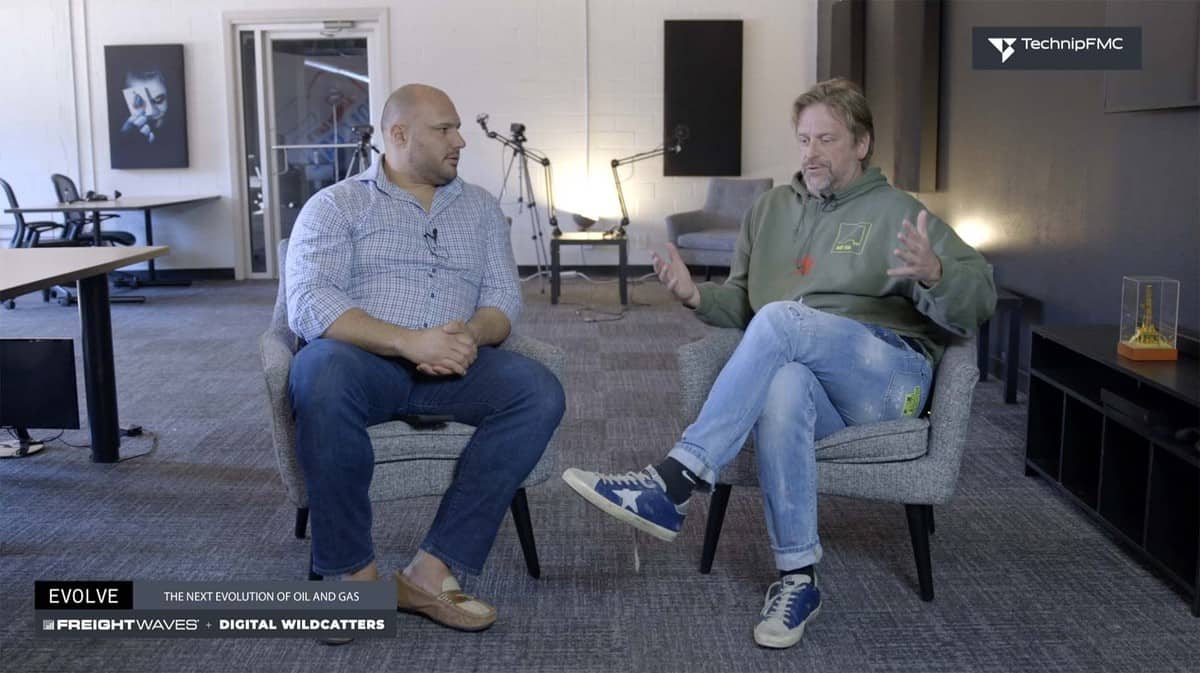This fireside chat recap is from Evolve: The Next Generation of Oil & Gas, a virtual summit presented by Digital Wildcatters and FreightWaves.
FIRESIDE CHAT TOPIC: How transparency is changing the oil and gas industry
DETAILS: A look at what happens midstream and downstream after the oil is pulled out of the ground and how the role of traders may change as more transparency – analytics and real-time data – floods into the oil and gas industry.
INTERVIEWER and SPEAKER: Chuck Yates of Digital Wildcatters, a content platform in the oil and gas industry, and George Paraskevopoulos, director of business development for 2DA Analytics, an analytics and SaaS provider across the oil value chain.
BIO: With more than 15 years of energy and commodity trading, brokering and marketing experience, Paraskevopoulos’ current mission is to help augment the development and marketing of cutting-edge bespoke energy trading and marketing software.
KEY QUOTES FROM PARASKEVOPOULOS:
On changes in the political landscape: “With pipes going offline for political reasons, like the Keystone XL, rail becomes, which was big 10 years ago, rail is now front and center as being economical again.”
On the impacts of increased visibility and data: “Real-time pricing information and real-time market intelligence – supply, demand, pricing and then logistical constraints thereof – are going to be huge. … So, having software user interfaces that allow you to see the topographical supply and demand lay of the land with pricing overlaid and other sort of like experiential things that older, wiser traders might know just intrinsically because of their experience, that can all be conveyed and conferred via software nowadays.”
On the impact to traders: “The middlemen in the supply chain, there are folks who just trade, don’t have production and they don’t have refineries or they don’t have convenience store chains or people to sell the gasoline or diesel fuel to. But they literally are a link in the supply chain because they know how to maximize a tank asset or they got pipeline space and they can trade around that. The producer who deals on a netback just wants to sell it at a market location for a set amount and be done with it. Those bookends are going to be able to play and they’re going to cut out a lot of middlemen.”











